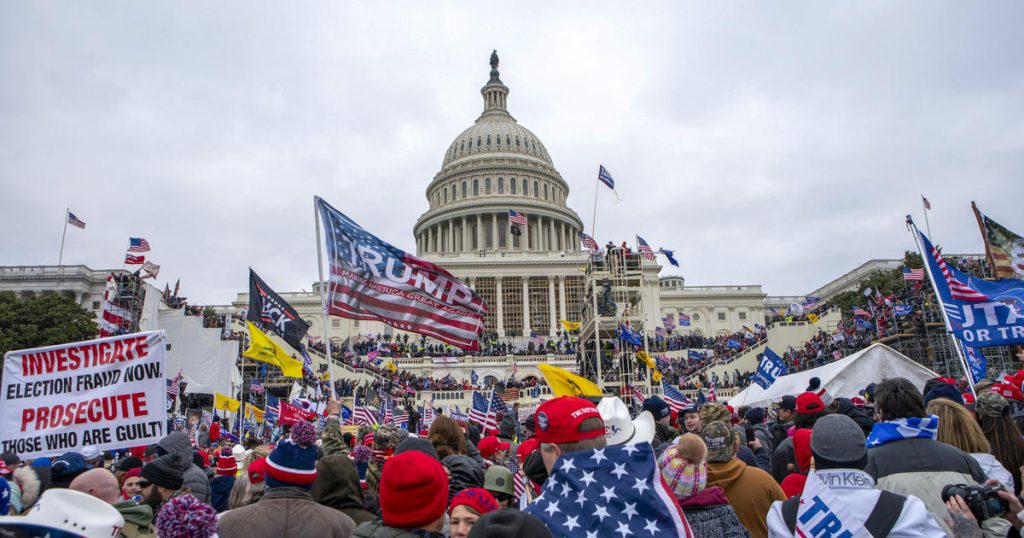The Supreme Court recently heard a case, Fischer v. U.S., which could narrow the scope of a federal obstruction statute used to prosecute individuals who breached the Capitol on January 6, 2021. At issue is whether prosecutors can apply a law passed after the Enron scandal to the Jan. 6 assault. The measure makes it a crime to “corruptly” obstruct or impede an official proceeding, and defense attorneys argue that the Justice Department is using the law too broadly. Since the Capitol attack, the statute has been levied against over 350 defendants who breached the building where Congress had convened to tally electoral votes.
Former President Donald Trump is facing charges related to obstruction of an official proceeding in a case brought by special counsel Jack Smith. The outcome of Fischer v. U.S. could have implications for Trump’s case, as well as for Jan. 6 defendants who have already been convicted or pleaded guilty to the offense of obstruction. A decision in favor of Fischer could prompt bids for new trials or lighter sentences for these individuals. Trump’s case has been paused for months as he seeks presidential immunity, and the Supreme Court is set to consider that issue in the coming weeks.
Joseph Fischer, one of the defendants charged with obstructing an official proceeding on Jan. 6, is seeking to have the count dismissed. Fischer’s lawyers argue that the Justice Department is using the law inappropriately and that there are already other criminal charges that cover the alleged conduct. The Justice Department, however, maintains that the law broadly prohibits corruptly obstructing an official proceeding and was meant to cover various forms of obstruction, including violent acts like those seen during the Capitol attack.
During oral arguments, the justices seemed divided over the scope of the obstruction statute. While some expressed concerns about the broad application of the law, others noted the severity of the events on Jan. 6 and the need to address actions that obstruct official proceedings. The Supreme Court’s decision in this case could impact dozens of defendants who have been convicted under the statute, as well as Trump’s legal proceedings. Regardless of the outcome, the special counsel has maintained that the charges against Trump are still valid, as he is accused of orchestrating a multi-pronged plot to reverse the outcome of the 2020 election.
The Supreme Court’s decision is being closely watched due to its potential implications for future cases involving obstruction of official proceedings. If the court narrows the scope of the statue, it could affect how prosecutors handle similar cases in the future. The ruling may also provide clarity on what constitutes corrupt obstruction and could lead to changes in how the law is applied in cases related to interference in official proceedings. The outcome of Fischer v. U.S. will likely have far-reaching effects on how obstruction statutes are interpreted and enforced in both the legal and political realms.


